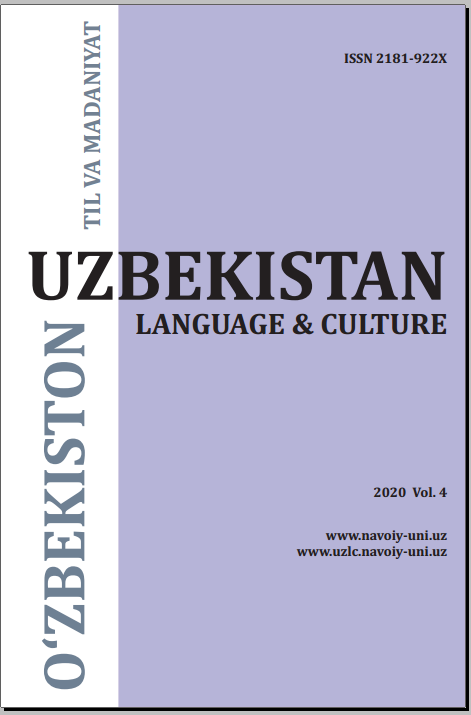Makhmood Shabustari’s “Gulshani Roz” as a Main Source in the Sufi Teaching
Keywords:
thought, education, tutoring, knowledgeAbstract
The masnavi “Gulshani roz” of Mahmood Shabustari (1289-1340), a spiritual heritage of the peoples of the Middle Ages of Orient, is considered to be a valuable treasure of Muslim culture. He is the famous
representative of the theology and the Sheikh who had conquered the
esteem of the Sufi teaching. His masnavi “Gulshani roz” is considered to
be the valuable treasure of the Muslim culture. The volume is small, but
it has rich content. The principles and doctrines of the Islamic teaching
and Sufi teaching of the 13-14th centuries are substantiated. The treatise
having didactical character has been written in the language of moralizing,
educational mode. The “Gulshani roz” is constructed upon the answer of
Mahmood Shabustari to the questions of Amir Husayni.
Shabustari’s masnavi “Gulshani roz” Masnavi stands high among
the great works of Sufism with its deep and rich content and popularity.
In particular, “Gulshani roz” is considered as the rare manuscripts such
as Sanai’s “Khadiqatul-haqiqa” (“Garden of truth”), Attar’s “Mantiquttayr”, Imam Ghazzali’s “Mukashafatul-qulub”, Jalaluddin Rumi’s “Masnavii
ma’navi”, Awhadi Maraghi’s “Jami jam” are among such rare works.
Information about the masnavi is available in the works of “Nafakhatuluns” of Jami, “Nasayimul-mukhabbat”, “Majalis un-nafais” of Alishir Nava’i,
“Khabib us-siyar” by Ghiyasuddin Khondamir, “Tazkiratush-shuara” by
Davlatshakh Samarkandi and other medieval authors in literary and
historical sources.
Key words:,,,, wise man
self-identity, perfect man, enlightenment, individuality, and generality.


